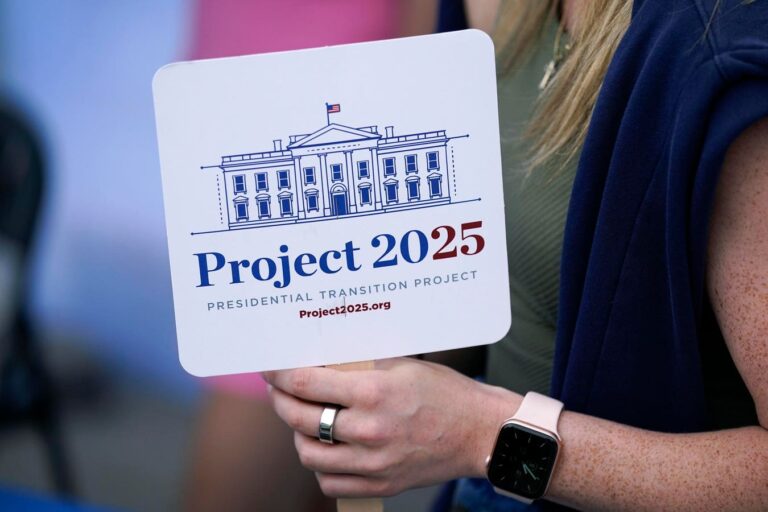In the tent of Project 2025 at the Iowa State Fair, held on August 14, 2023, a powerful message hovered in the air, carried by fans in the hands of supporters such as Kristen Eichamer. A brainchild of the Heritage Foundation think-tank, Project 2025 has grown into a seedbed of ideas, policies, and strategies for a potential second term of former President Donald Trump. Amid the fair’s hum and thrum, the tent stood as a haven for robust policy contrasts between the existing Biden Administration and the prospect of a renewed Trump era.
One of the pivotal areas of disagreement is the handling of environmental, social, and governance (ESG) issues by the Department of the Treasury. The Treasury, under President Biden, has taken several measures to contend with climate change. However, Project 2025’s stance indicates a possible reversal of these policies and even a withdrawal from the Paris Agreement if Trump returns to the White House.
In 2015, the Paris Agreement set forth a global mandate to reach net-zero greenhouse gas emissions by 2050. Every nation was charged with establishing policies to minimize and report Green House Gas (GHG) emissions and allocate funds for climate change initiatives and their economic impacts. Despite Trump’s withdrawal from the treaty in 2020, President Biden’s administration rejoined the agreement in 2021.
In tandem with this global focus on climate change, businesses saw increased pressure to be both transparent and actionable in their climate and environmental policies. The financial industry, including the Department of Treasury, also embraced ESG and sustainability. The Treasury rolled out the Principles for Net-Zero Financing & Investment in September 2023 and introduced climate-related initiatives like the Climate Hub and reports on Climate-Related Financial Risks.
Yet, this shift toward climate change and ESG has drawn criticism from conservative quarters. Ahead of Trump’s first term, the Heritage Foundation had recommended a withdrawal from the Paris Agreement. A position that informs much of Project 2025’s stance on these issues.
Project 2025 offers a blueprint for change in the form of a book, training, personnel, and a 180-day playbook to prepare for a possible change in the presidential administration. The book, ‘Mandate for Leadership: The Conservative Promise,’ includes a chapter on the Department of Treasury co-authored by William L. Walton, Stephen Moore, and David R. Burton. The authors criticize the current administration’s fiscal record and its focus on climate change and ‘equity.’ They urge the next administration to refocus the Treasury’s mission on promoting economic growth, prosperity, and stability.
In an excerpt from the book, the authors argue that the Treasury’s focus on combatting climate change is misdirected and harmful to US prosperity. They postulate that economic growth and technological advance are the best ways to deal with extreme weather events. They also argue that the Biden Administration’s climate initiatives will have minimal impact and weaken the US economy without yielding societal benefits. The authors advocate for the US withdrawing from the Paris Agreement and investing in domestic energy, including oil and gas.
This perspective from Project 2025 underlines the heated debate in the US surrounding climate change policies. It’s a timely reminder of the significant impact elections and policy shifts can have on international agreements and domestic industries. With more than a year to go for the 2024 election, it remains to be seen how these ideologically diverse viewpoints will shape the political discourse.
